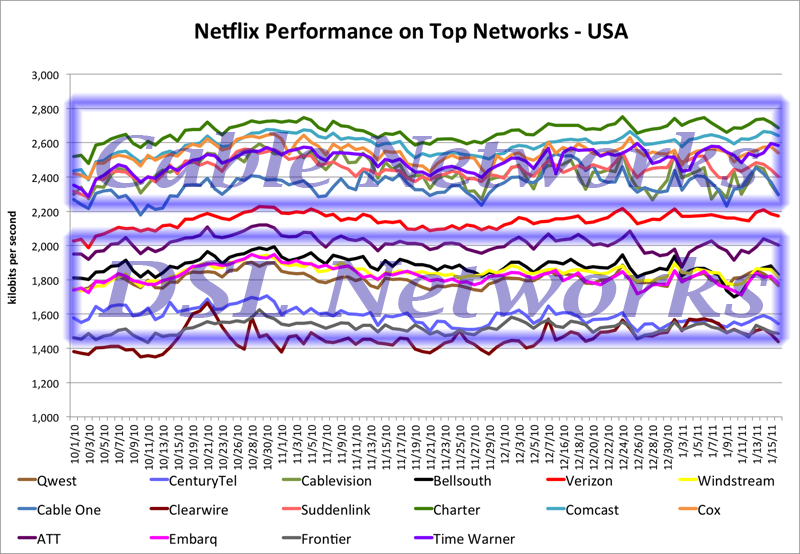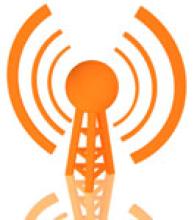Fast, affordable Internet access for all.
Wireless
Content tagged with "Wireless"
Community Groups Oppose AT&T Takeover of T-Mobile
“Our communities cannot afford higher prices and less choices. We need the FCC and DOJ to block this takeover if it's found to be in violation of antitrust law and does not meet public interest obligations,” said Betty Yu, National Organizer for MAG-Net. "If AT&T takes over T-Mobile, it will be a disaster for all mobile phone users. It will stifle information, choice and innovation- and lead to higher prices and fewer jobs nationwide, added CMJ's Policy Director, amalia deloney. "It's a real jobs and democracy killer.” The groups also contend the takeover will disproportionately harm consumers of color, who rely on their cell phones to access the Internet more than whites. While 10 percent of whites access the Internet only from their phones, 18 percent of blacks and 16 percent of English-speaking Latinos depend on affordable wireless coverage to get online.And an excerpt from the letter [pdf]:
The impact that this merger would have on affordable mobile phone service, broadband access and adoption, openness on the mobile web and broadband competition presents a real threat to our communities. We hope that the Department of Justice and Federal Communications Commission will examine AT&T's proposed acquisition of T-Mobile with appropriate scrutiny and protect our communities by blocking this merger. We intend to host a series of open and participatory meetings in our communities to discuss this merger, and we hope that FCC Commissioners will commit to joining us. It is only by communicating directly with people and hearing our stories that you will feel our deep concerns with this merger and the devastating impact it would have on our communities.We continue to advocate for universal, affordable, fast, and reliable broadband, which to us means a wired connection eventually to all homes that are connected to the electrical grid.
Rural Massachusetts Open Access Fiber-Optic Network Builds Momentum
Town participation in the WiredWest municipal telecommunications cooperative requires passing two consecutive town votes at separate meetings to establish Municipal Light Plant (MLP) legislation in the town. The MLP legislation was created in the Commonwealth over 100 years ago to enable towns to generate their own electricity. In 1996, the ability for towns to offer telecommunications services was added to the MLP statute. WiredWest charter towns researched various governance options and determined this was the best choice for enabling towns to offer telecommunications services, work together cooperatively and issue municipal debt to capitalize the network.Towns have been passing the 2/3 votes with overwhelming approval, as in the town of Florida, with a 30-1 vote. Wired West is maintaining an impressive map of the status of each town along the path. Clicking on a town brings up more information about that town. Kudos to them for making a great map that is easy to use and conveys a lot of information. The Berkshire Eagle recently published an op-ed discussing the importance of economic development in the area:
Because many Berkshirites work, either at home or in an office, in towns without high-speed Internet service, making such connections widely available is vital to economic development in the county.
New America Foundation on Community Wireless and Digital Divide
A program from the New America Foundation discussing community wireless (including international perspectives) and the digital divide.
Video streaming by Ustream
Clearwire Validates Skepticism About Wireless as Last-Mile Solution
Customers began complaining in mid-2010 that Clearwire had begun to throttle their home Internet connections, sometimes as slow as 256Kbps. It wasn't clear (ba-dum ching) at the time as to what standard Clearwire was using in order to trigger the throttling—some users were told about monthly usage caps while others were simply told that there were certain times of day in which the network would be congested. Customers were frustrated at this lack of transparency, and complaints began piling up all over the Web.We were told for years that WiMax would obviate the need for last-mile wired connections. Now we are told that 4G LTE will solve those problems - and gullible reporters gush about how fast their connections are in these early days as the network is built. This is akin to driving on a metro interstate at 3AM and wondering why anyone would ever complain about rush hour traffic. 4G networks will likely be much better than 3G (it is a higher number, after all) but it remains to be seen how well they perform in real world conditions when many devices can actually attach and congest them. We remain skeptical of wireless as a solution to last-mile problems. Wireless does little more than take a high-capacity wired connection and split it among hundreds or thousands of users - while reducing its reliability.
Chanute, Kansas, Publicly Owned Fiber-Optic Network Serves Area Businesses
I continue to find it odd that more communities with publicly owned networks do not create official videos or other promotional material that is readily accessible on the Internet. Videos discussing fiber-optic investments continue to be the exception to the rule.
But it was a video promoting Chanute's fiber-to-the-business network that I stumbled across in a search for something else. It turns out that Chanute has built a network with a variety of current and planned uses:
Verizon: The Future is Wired
"If you get underneath what's driving the fiber in the metropolitan markets it has been the need for increased video, increased reliability and security for customers," Seidenberg said. "The way we think about it is even though we have this great 4G mobile network, you still need to have fiber to the premises because we think your home will utilize a Gigabit of bandwidth." ... "The way we look at it is we want to get fiber to as many business premises and cover as much as the footprint as we can and we believe everyone else going to do the same thing in other parts of the country," Seidenberg said.
Evidence for the Looming Cable Monopoly
The Netflix Techblog has released a graph of performance by Internet Service Provider - which I modified to demonstrate the Looming cable monopoly as identified by Susan Crawford (and recently discussed here by Mitch Shapiro).

The trend is unmistakable. There are 2 distinct groupings - the cable providers all beat the DSL providers (Verizon is in the middle, likely due to its fast FiOS speeds averaging with much slower DSL connections). At the very bottom is Clear's 4G WiMax - you know, the superfast wireless that is the key to fast broadband!
Communities need to read this chart and take a lesson: the future of broadband is not pretty if you do not have a network that puts your needs first. Cable broadband speeds are increasingly more rapidly than DSL, meaning a local monopoly on high speed broadband, with DSL slowly becoming the modern dial-up.
Sean McLaughlin Discusses Community Wireless in Eureka, California
Vermonters Angry at Wireless Broadband Stimulus Grant Instead of Fiber Loan
Senator Bernie Sanders led off his “broadband town meeting” Saturday morning at Vermont Technical College with a ringing affirmation of the need for better broadband coverage in Vermont and the nation. However, nobody in the crowd of nearly 300 people needed to be convinced of that. What they wanted to know was whether a huge new federal grant to a private company was the right way to do it.VTel, a small private telephone company, received a $116 million grant to build a FTTH network to serve their existing 18,000 footprint as well as a wireless network that is intended to serve the entire state. In contrast, the East Central Vermont Fiber Network (which we have covered previously), applied for a loan to build a FTTH network to everyone in the 24 communities that have joined together to form the network. The ECFiber network would be run by a nonprofit and would repay the loan from revenue generated by selling triple-play services on the network.







